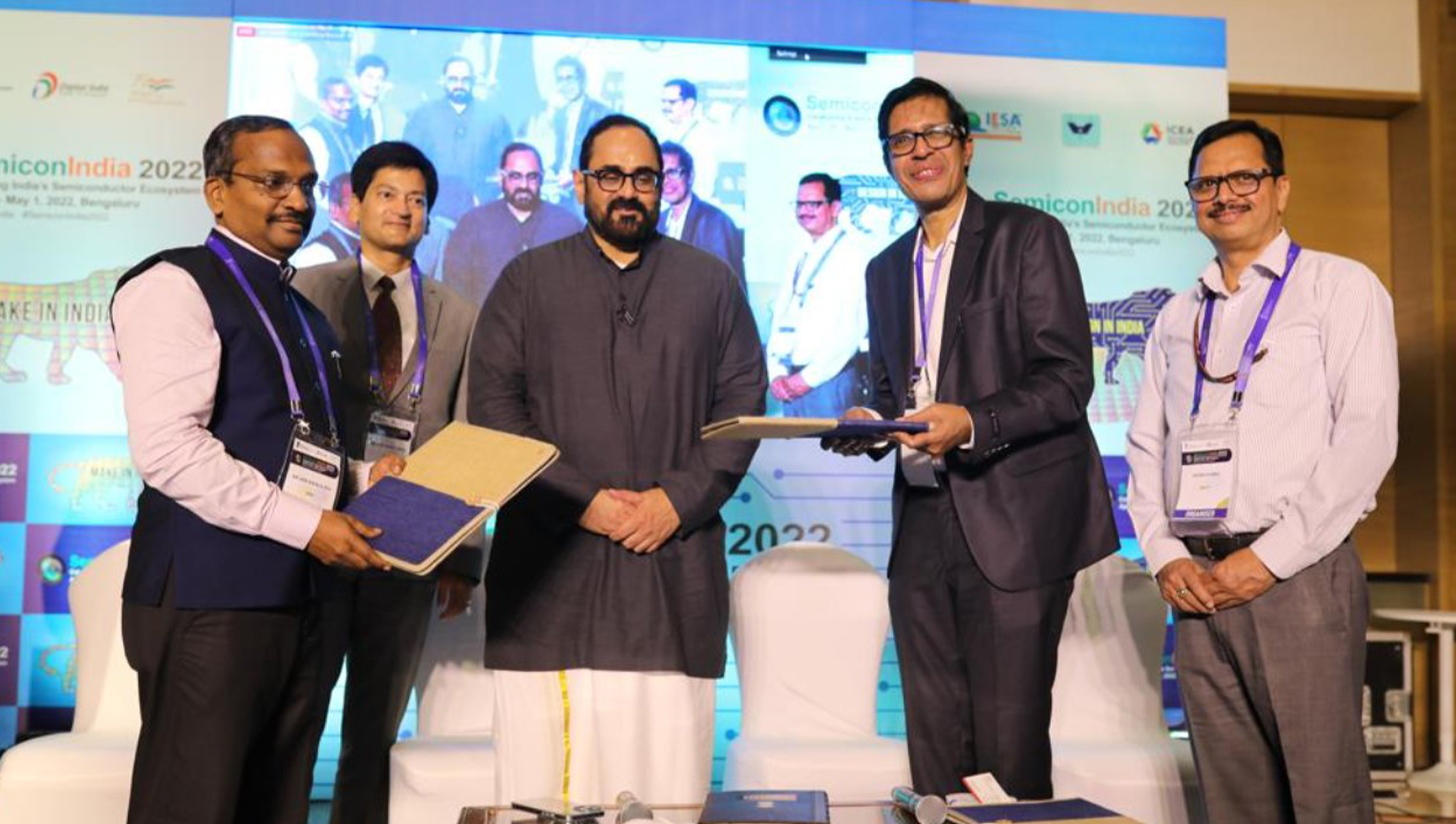BENGALURU: The wheels are set in motion to power the semiconductor ecosystem in the country as the government signed multiple Memorandum of Understanding (MoUs) with leading names including Sony India, ISRO, ICGAR and BEL.
At the Semicon 2022 in Bengaluru, the Ministry of Electronics and Information Technology (MEITY) unveiled a roadmap to catalyse the industry’s ecosystem with pacts on design and co-development.
The country has recently announced the Digital India RISC-V (DIR-V) program with the aim of creating microprocessors for the country’s and the world’s future. It also aims to achieve industry-grade commercial silicon and design for the next generation of microprocessors by the month of December 2023.
Following it the DIR-V has announced MoUs for the use of indigenously developed RISC-V Processors – SHAKTI and VEGA.
The MoU includes one between SONY India and DIR-V SHAKTI Processor (IIT Madras) for the Systems/Products developed by SONY.
Another MoU was signed between ISRO Inertial Systems Unit (IISU), Thiruvananthapuram and DIR-V SHAKTI Processor (IIT Madras) for the development of high-performance SoCs (System on Chip) and Fault-Tolerant Computer Systems.
An MoU was signed between the Indira Gandhi Centre for Atomic Research (IGCAR), Department of Atomic Energy, and DIR-V SHAKTI Processor (IIT Madras) for the Systems/Products developed by IGCAR.
Bharat Electronics Limited (BEL) and DIR-V VEGA Processor (C-DAC) signed an MoU for Rudra Server board, Cyber security, and Language Solutions.
DIR-V VEGA Processor (C-DAC) also signed an MoU with the Centre for Development of Telematics (C-DOT) for the 4G/5G, Broadband, IOT/ M2M solutions.
Rajeev Chandrasekhar, Minister of State for Electronics & Information Technology and Skill Development & Entrepreneurship said, “There has been an exponential growth in electronics production in India. The sector has grown to fulfil domestic demand and export globally. This is fuelling the demand for microprocessors and chips. The time is ripe for India to rise and take up this challenge head-on.”
“Our startup ecosystem is replete with some of the best minds in technology and I am confident that our startups will drive the next wave of innovation, leading India’s digital economy. Our design and innovation ecosystem is robust and thriving and I am certain our next wave of unicorns will be from this sector,” he added.










